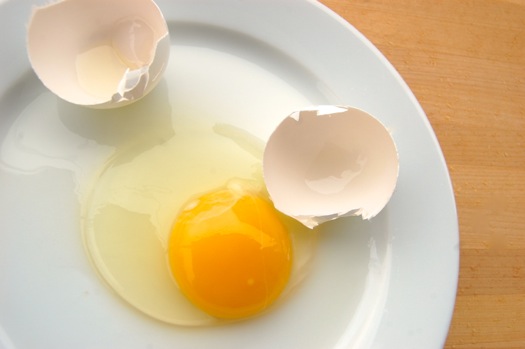How important are fresh eggs for cake baking?

Good question, reader Debbie. I once thought that fresh eggs were important for good layer cakes. That was good ol’ farm wife wisdom. However I’ve since come to see that very fresh eggs are not important to a cake’s taste or texture and are indeed a little more of a hindrance than a help when it comes to mixing a batter. Pictured above is a fairly fresh egg. You can tell by the high-standing and gelatinous albumen (white). It’s lovely for a fried egg, where the runny white of an older egg makes a much less appetizing presentation, but when you’re trying to incorporate it evenly into a liquid batter, its firmness makes it rather difficult to blend in. Is it a big deal? No. You just have to be a little careful that you’re not whipping the eggs and milk (if you’re making a one-bowl or creaming method cake) so much that you’re creating lots of extra air bubbles.
Overall I’ve found that the traditional French idea that old eggs are better for the pastry chef is true. Old eggs incorporate easier, whip easier and really have little if any effect on flavor, considering everything else that goes into a cake: sugar, butter, flavorings and whatnot. That’s sort of nice when you think about it. You can save the good fresh-from-the-chicken ones for a satisfying lunch, and put what’s not-so-fresh to good use once the oven’s on.